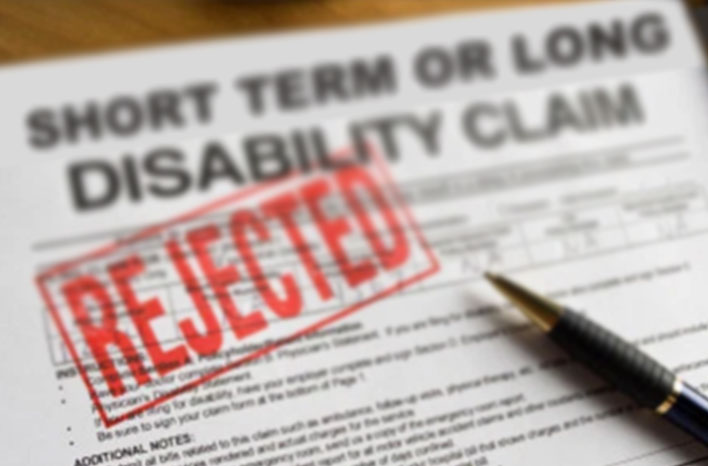Short-term disability insurance applicants frequently believe their insurer is not properly managing their claim. Insurance companies are inherently motivated to wrongfully manage, delay, or deny short-term disability claims to avoid paying out the benefits you are legally entitled to. The ERISA-compliant insurance companies frequently reject short-term disability claims for several reasons.
In general, when an insurer denies a claim for short-term disability benefits, the claimant is less likely to pursue the matter further and make an effort to obtain benefits because they are likely to focus on recovery and returning to work. However, a potential claimant could work with an ERISA short-term disability insurance attorney to determine precisely what coverage they require and assist them in establishing strong evidence for the necessary coverage. Read on if you want to learn more about short-term disability denial criteria.
What Are Short-Term Disability Benefits?
When an employee becomes ill or wounded and cannot execute their work tasks for a predetermined period, their employer’s short-term disability (STD) insurance compensates a portion of their compensation. The perk typically pays between 40 and 60 percent of the employee’s gross weekly income. Depending on the policy level and premium you select, independently acquired short-term liability insurance functions largely in the same way, providing partial to full income coverage.
When Does Coverage Start?
Employees suffering from a condition that prevents them from working often receive coverage one to 14 days after the onset. From the time of eligibility, the length of coverage may range from 9 to 52 weeks. Employees frequently have to use their sick days before short-term disability benefits begin if an illness keeps them from working for a long time.
In contrast to disability insurance for accidents that happen off the job, employers frequently have other types of insurance that cover workplace injuries, such as workers’ compensation, with different regulations and restrictions. A long-term disability plan or permanent disability kicks in if an employee must miss more time from work than the short-term disability benefits coverage period. This may occur 10 to 53 weeks from the date of eligibility.
Reasons for Denial

Many persons with valid disability insurance claims are not granted benefits, forcing them to file an appeal with their insurer. You are not required to accept the decision as final if your STDI claim is denied. You are allowed to contest that denial. The Employee Retirement Income Security Act of 1974, or ERISA, specifies the steps you must take to appeal successfully.
However, it is important to know why your claim was denied before you appeal. There are several reasons why your short-term disability benefits were denied. Some of the common reasons are:
1. Inconsistent Statements
The insurer will use any contradictory comments or actions you make in correspondence with the insurance as justification for rejecting your disability claim. Insurance companies may employ staff to monitor your social media accounts or carry out in-person surveillance to ascertain whether you are lying about your health or misrepresenting the specifics of your incapacitating ailment.
2. Incomplete Medical Documentation

The lack of sufficient medical paperwork could result in the denial of your short-term disability claim. Your doctor may need to provide documented assurance that your symptoms are serious and that they are keeping you from working. The insurance will argue that they are justified in withholding coverage if you have falsified important information or omitted important details. The key to refuting this denial is proving that the insurance coverage is unaffected by the lack of information.
3. Partial Disability
In many cases, short-term disability insurance policies only release payments in the event of total disability and do not provide benefits for partial disabilities. As a result, short-term insurers may try to avoid paying benefits by considering your condition in the context of your line of work and concluding that you are still capable of executing some professional duties.
Your disability benefits may also be refused if the insurance provider determines that you have not received appropriate therapy. To match the apparent seriousness of your diagnosis, you might need to visit a specialist for an appropriate medical record.
4. Delegation of Duties

The insurance company might contend that you can simply assign another employee to perform your obligations for the time being while your condition is being treated. Given that your incapacity is temporary, the insurance can claim that the delegation won’t necessarily negatively impact your career. Getting legal assistance as soon as possible in these circumstances is advisable as they might be challenging to handle. When speaking with your insurance provider, you must be careful with how you come across and what you say.
5. Lack of Evidence
You should ensure that your claim for short-term disability benefits has all the pertinent documented proof required to get a favorable response from your insurer. If your claim lacks supporting documentation, the insurer will deny it, citing your record’s inadequacy. More documentation may need to be obtained from your medical staff. It may be advantageous to speak with a lawyer before any disputes arise.
6. Disagreement With Doctor

Your medical records could occasionally lead doctors into believing your condition is not particularly serious. If this leads to the denial of your short-term disability claim, it’s among the simplest things to rectify. Many medical professionals mean well, but they just misunderstand the criteria that must be met for you to be eligible for sick leave. You may occasionally need to explain the situation to your doctor and provide evidence that you’ve tried all possible ways to improve. After you’ve done that, their records ought to reflect your support.
Consult A Lawyer
If your claim has been denied, it is essential to consult an experienced disability lawyer. Even though you can appeal independently, it is advisable to speak with a lawyer. An expert attorney can assist you in communicating with the insurance company on your behalf, collecting and evaluating evidence, and possibly filing a short-term disability rejection lawsuit.
Final Thoughts:
If you have just been diagnosed with a sickness or injury that could keep you out of work for a long time, speaking with an attorney about your medical condition and disability coverage is a practical option. Having experienced legal representation from the outset may improve your chances of being granted benefits.


